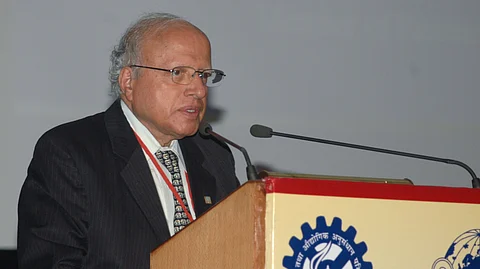

Eminent agricultural scientist MS Swaminathan passed away in Chennai on Thursday, September 28. He was 98 years old. Credited as the main architect of India’s green revolution, when the country saw a rapid increase in agricultural output, Swaminathan is known for his extensive work in plant genetics. He is credited for developing high-yielding varieties of wheat and rice. Swaminathan later promoted an ‘evergreen revolution’ advocating organic agriculture and sustainable food security.
Born in Tamil Nadu’s Kumbakonam on August 7, 1925, Swaminathan graduated from the University of Madras, and completed his PhD at the University of Cambridge. In 1954, at the age of 29, he joined the Indian Agricultural Research Institute (IARI) in Delhi as an assistant cytogeneticist. A few years later, he worked with American agricultural scientist Norman Borlaug to bring high-yielding varieties of wheat and rice in the 1960s when India was on the brink of mass famine and was dependent on foreign aid. Swaminathan’s high-yielding varieties of wheat raised the total crop yield from 12 million tons to 23 million tons in a matter of four seasons, ending India’s reliance on grain imports. His agricultural vision helped India achieve self-sufficiency, transforming the country from a food-scarce country to a ‘bread basket’.
Swaminathan went on to serve in various administrative positions leading agricultural science research in India including working as Principal Secretary of the Agricultural Ministry (1979-90) and serving as a member of the Planning Commission (1980-82). He served as an independent Chairman of the United Nations Food and Agriculture Organisation (FAO) Council, Chairman of the National Commission on Farmers, Director General of the Indian Council of Agricultural Research (ICAR), head of the International Rice Research Institute and several other posts.
He was awarded the Padma Shri in 1967, the Padma Bhushan in 1972 and the Padma Vibhushan in 1989. He also won the World Food Prize in 1987, and the United Nations Environment Programme (UNEP) Sasakawa Award in 1994. Swaminathan was also listed by Time magazine as one of the 20 most influential Asians of the 20th century. He was nominated to the Rajya Sabha by the then President APJ Abdul Kalam in 2007. In 1988, Swaminathan opened the MS Swaminathan Research Foundation (MSSRF) in Chennai with proceeds from the first World Food Prize.
Swaminathan was married to educationist Mina Swaminathan, who passed away in 2022. The couple is survived by three daughters – Soumya Swaminathan, clinical scientist and former Chief Scientist at World Health Organisation (WHO); Madhura Swaminathan, professor, economic analysis unit, Indian Statistical Institute, Bengaluru; and Nitya Rao, director, the Norwich Institute for Sustainable Development, University of East Anglia, UK.